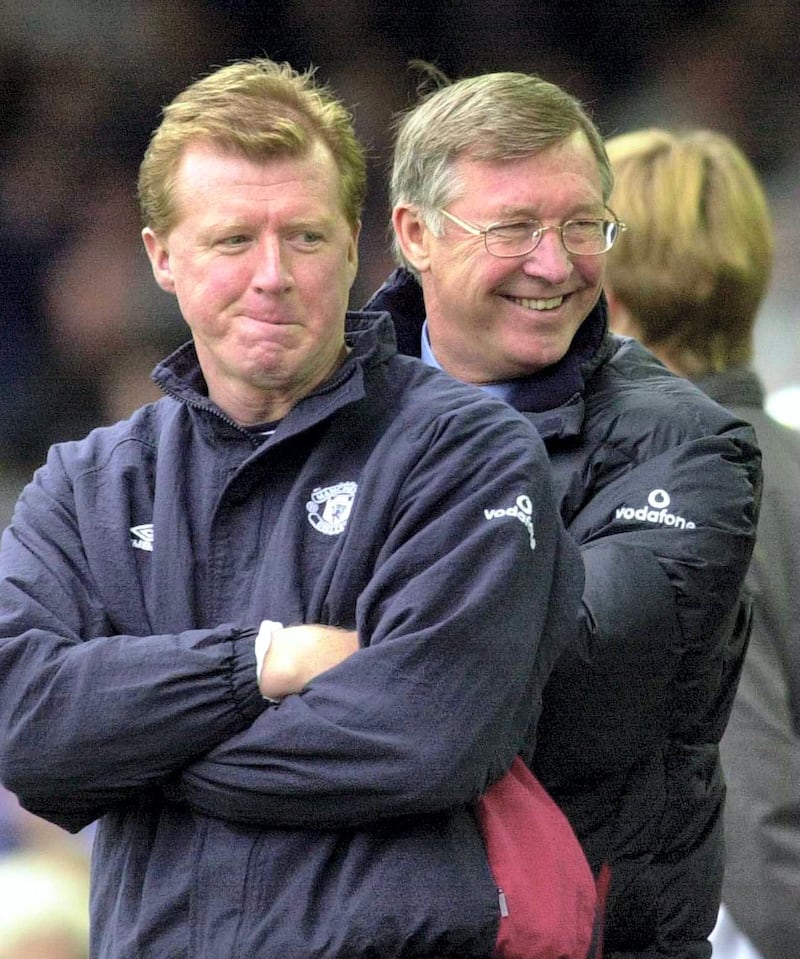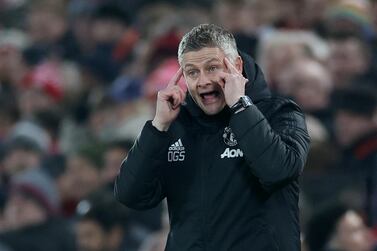Steve McClaren has described Manchester United manager Alex Ferguson as his biggest influence and the treble season at Old Trafford as one of the high points in his coaching career.
That famous season – when United won the Premier League, FA Cup and Uefa Champions League – was the former England manager’s first year as assistant to Ferguson at Old Trafford.
“The year I moved from Derby County to Manchester United as assistant in the year of the treble was the difference for me,” McClaren told the audience at the Leaders Sports Business Summit at Yas Marina on Tuesday.
“The key wasn’t just the cultural environment or anything that was created at Manchester United, but a single person: Sir Alex. He was the biggest influence on me.
“Firstly, it was his work ethic. I thought I worked hard but he was there at 7am and attending meetings at 7.30am. There was no way I could beat him at work. He was always working for Manchester United.
“Second thing of him was he was brutally honest. He wanted discipline maintained at every level and every job.
“The third most important thing for me was his trust. He gave me a clean sheet everyday to go and work with the players. That’s the trust he had in me. He helps everyone as much as possible”
McClaren said the biggest change he experienced in more than 30 years as a manager was the advent of the mobile phone that has become an important tool to connect and communicate with players.
“With the phone/video I can be anywhere in the world and watch players, watch games, I can do this and that, and can connect and communicate with the players as a team or individually,” he said.
“We are now individual brands. Now in order to get together we need to create situations with the modern players to connect and communicate, and we do that now by regular meals, having lunch or dinner to stay together for half-an-hour.”
McClaren, who also managed Premier League sides Middlesbrough, Newcastle United and most recently Queens Park Rangers, insisted that as coaches they still wanted to make sure they had meetings with and feedback from the players.
“As coaches we must communicate with players because the success of any team relies on the connection and communication,” he said.
“Getting that dressing room right is important. The process from Monday to Friday vindicates on Saturday.
“When you get that right, you win the game on Saturday. So, you get into a situation when you come to work, how many wants to play and you need to sell that to the players. Then you get them committed.
“The modern players, half of them at the top level, I think change all the time. What they like now is to get an insight on how they approach the game, how special they are, strong mentally.”
Nigel Adkins, the former manager of Southampton, Sheffield United and most recently Hull City, who joined McLaren on the stage, said modern managers had to be on top of every aspect of the technical side to be successful.
Adkins was player-manager at Bangor City before joining Scunthorpe United in the physiotherapy department.
“I started a part time degree on physiotherapy and the first two years of my degree I was still playing for Wigan Athletic,” he said
“But I made sure I get through my degree because that would give me stability to get a job when my time as a player comes to an end. The degree in physiotherapy became useful on my managerial CV.”







